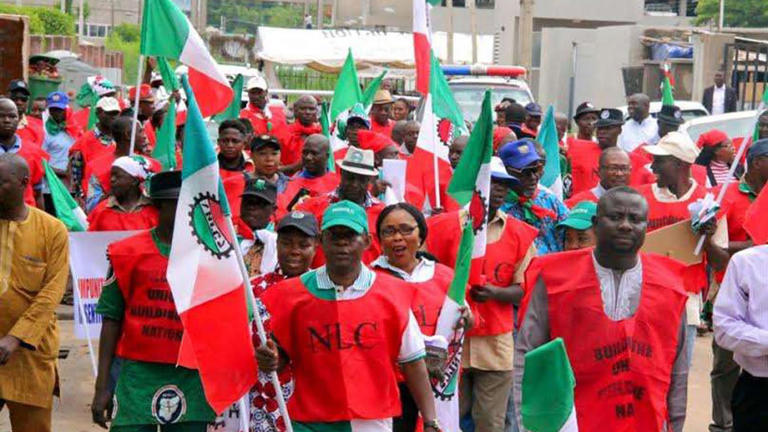
Economic activities in four Nigerian states, including the Federal Capital Territory (FCT), were significantly disrupted on Monday as members of the Nigeria Labour Congress (NLC) and the Trade Union Congress (TUC) commenced a one-week warning strike.
The industrial action protests the non-implementation of the N70,000 minimum wage, which was approved earlier this year.
States Affected by the Strike
The strike affected Nasarawa, Kaduna, and Ebonyi states, as well as the FCT, where workers stalled operations in ministries, agencies, and schools.
FCT, Abuja: Teachers in area councils protested against the councils’ failure to implement the new minimum wage.
Kaduna State: Workers paralysed government operations, although the state government claimed to have started paying the minimum wage in October, excluding consequential adjustments.
Ebonyi State: Organised labour accused Governor Francis Nwifuru of failing to back his announcement of a N75,000 minimum wage with action. In response, Nwifuru issued a 72-hour ultimatum for workers to resume work or face dismissal, a move the NLC condemned as “irresponsible.”
Nasarawa State: Similar protests brought economic activities to a halt.
Labour Union Response
NLC spokesperson Benson Upah hailed the first day of the strike as a success, citing high compliance across states.
He criticised Governor Nwifuru’s ultimatum, describing it as a “self-righteous journey” and contrasting it with measures taken by other governors to address the wage issues.
Background to the Strike
The industrial action comes after President Bola Ahmed Tinubu signed the National Minimum Wage Bill into law in July 2024, setting the new wage at N70,000. While the federal government and some states began implementation, others have delayed, leading to growing worker dissatisfaction.
Looking Ahead
As the strike continues, tensions between organised labour and state governments may escalate, particularly in states like Ebonyi where threats of dismissal have been issued. Labour unions have called for swift compliance with the minimum wage law to prevent further disruption and unrest.


